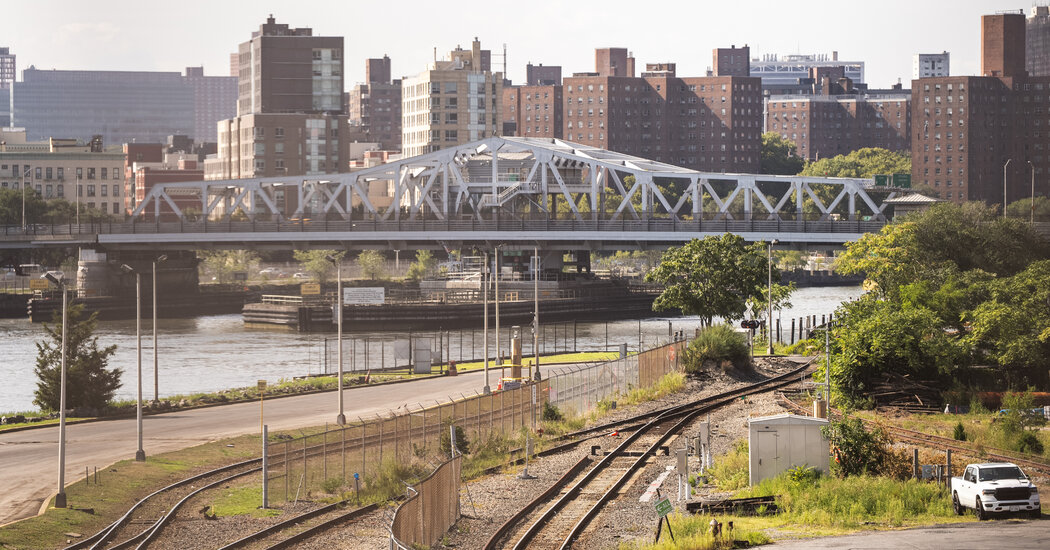Extreme heat and flooding are accelerating the deterioration of bridges, engineers say, posting a quiet but growing threat.
On a 95-degree day this summer, New York City’s Third Avenue Bridge, connecting the Bronx and Manhattan, got stuck in the open position for hours. As heat and flooding scorched and scoured the Midwest, a steel railroad bridge connecting Iowa with South Dakota collapsed under surging waters. In Lewiston, Maine, a bridge closed after the pavement buckled from fluctuating temperatures.
America’s bridges, a quarter of which were built before 1960, were already in need of repair. But now, extreme heat and increased flooding linked to climate change are accelerating the disintegration of the nation’s bridges, engineers say, essentially causing them to age prematurely.
The result is a quiet but growing threat to the safe movement of people and goods around the country, and another example of how climate change is reshaping daily life in ways Americans may not realize.
“We have a bridge crisis that is specifically tied to extreme weather events,” said Paul Chinowsky, a professor of civil engineering at the University of Colorado Boulder who researches the effects of climate change on infrastructure. “These are not things that would happen under normal climate circumstances. These are not things that we’ve ever seen at this rate.”
Bridges designed and built decades ago with materials not intended to withstand sharp temperature swings are now rapidly swelling and contracting, leaving them weakened.
“It’s getting so hot that the pieces that hold the concrete and steel, those bridges can literally fall apart like Tinkertoys,” Dr. Chinowsky said.
